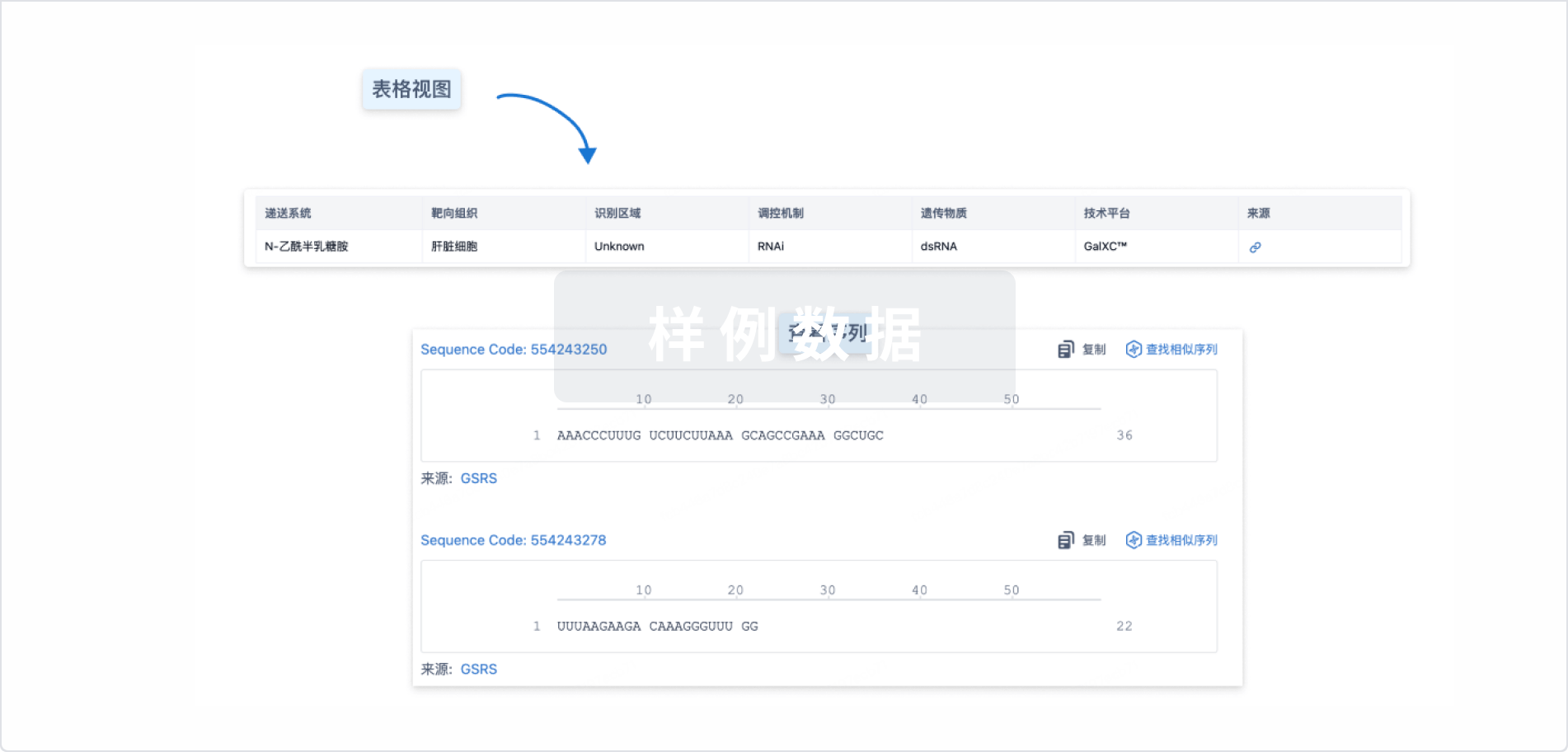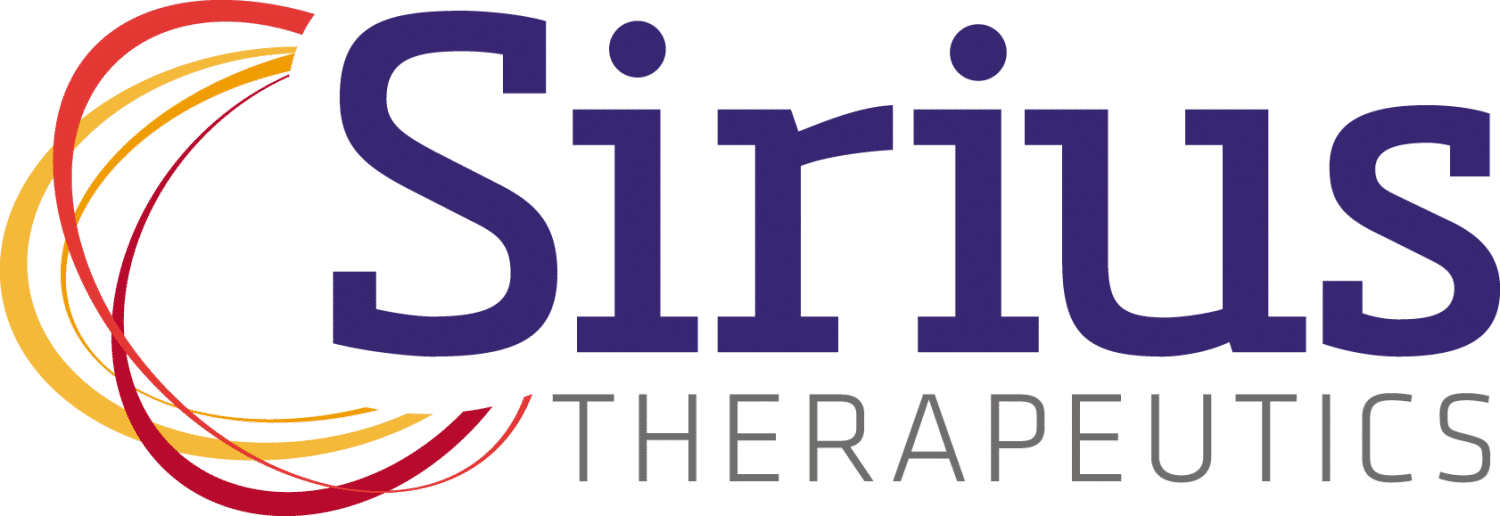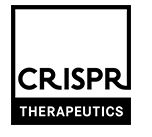预约演示
更新于:2026-02-27
SRSD-107
更新于:2026-02-27
概要
基本信息
原研机构 |
非在研机构- |
最高研发阶段临床2期 |
首次获批日期- |
最高研发阶段(中国)临床2期 |
特殊审评- |
登录后查看时间轴
结构/序列
使用我们的RNA技术数据为新药研发加速。
登录
或

关联
4
项与 SRSD-107 相关的临床试验NCT07318155
A Phase 2a Randomized, Double-Blind, Placebo-Controlled, Sequential Cohort Study to Evaluate the Pharmacodynamics, Safety and Pharmacokinetics of Subcutaneously Administered SRSD107 in Participants With Chronic Coronary and/or Peripheral Arterial Disease
The study is a Phase 2a, randomized, double-blind, placebo-controlled, sequential cohort study to evaluate the pharmacodynamics (PD), safety and pharmacokinetics (PK) of multiple doses of SRSD107 in participants with coronary arterial disease (CAD) and/or peripheral arterial disease (PAD) with aspirin as background concomitant therapy.
开始日期2026-01-01 |
申办/合作机构 |
NCT07140523
A Multicenter, Randomized, Open-Label, Blinded Endpoint Evaluation, Active Controlled Study to Compare the Efficacy and Safety of SRSD107 and Enoxaparin in Adult Subjects Undergoing Elective Primary Unilateral Total Knee Arthroplasty
This is a Phase 2, multicenter, randomized, open-label, parallel group, blinded endpoint evaluation, active-controlled, dose-finding study.This study is designed to compare the efficacy and safety of 3 dose levels of SRSD107 and enoxaparin 40 mg daily in subjects undergoing elective primary unilateral TKA.
开始日期2025-09-16 |
申办/合作机构 |
CTR20240977
一项评价SRSD107皮下注射给药在健康受试者中的安全性、耐药性、药代动力学和药效学的随机、双盲、安慰剂对照、单剂量递增、I期临床研究
一项评价SRSD107皮下注射给药在健康受试者中的安全性、耐受性、药代动力学和药效学的随机、双盲、安慰剂对照、单剂量递增、I期临床研究
开始日期2024-03-29 |
申办/合作机构 |
100 项与 SRSD-107 相关的临床结果
登录后查看更多信息
100 项与 SRSD-107 相关的转化医学
登录后查看更多信息
100 项与 SRSD-107 相关的专利(医药)
登录后查看更多信息
101
项与 SRSD-107 相关的新闻(医药)2026-02-27
·药闻康策
☝ 点击上方 一键预约 ☝
最新最热的医药健康新闻政策
我们曾明确提出:2026 年医药投资的核心主线就是“确定性”。
延续“确定性”的投资主线,哪些即将登陆资本市场的医药公司蕴含机会呢?接下来我们就直奔主题,对正在申请IPO的企业进行盘点,找出10家存在“确定性”机会的企业。
01
礼邦医药:肾病龙头
2025年10月30日,礼邦医药首次向港交所递交招股书,成为国内肾病创新药领域首家冲击港股IPO的Biotech企业。
礼邦医药拥有行业内最全面的肾脏病创新产品组合,覆盖高磷血症、糖尿病肾病、IgA肾病等多个核心适应症;其管线中多款产品为全球首创(FIC)或同类最佳(BIC),且已有一款长效促红素(EPO)实现商业化上市,为公司提供稳定现金流支撑。
图:礼邦医药研发管线,来源:招股书
核心产品AP301是一款潜在BIC磷酸盐结合剂,主要用于治疗高磷血症。2025年美国肾脏病学会(ASN)年会上,礼邦医药公布了该产品中国III期关键注册临床研究(RESPOND-1)结果:其52周血清磷应答率从基线的1.1%提升至第52周的66.7%;此外,在血钙、钙磷乘积、iPTH(全段甲状旁腺激素)、骨特异性碱性磷酸酶(BSAP)及骨钙素等次要终点指标上,AP301亦表现出稳定改善,或呈现与血磷下降相一致的改善趋势。
AP306为潜在FIC泛磷转运蛋白抑制剂,是全球首款、且截至目前唯一一款用于治疗高磷血症的泛磷转运蛋白抑制剂。在已完成的II期临床试验中,AP306单药治疗可使患者血磷平均降低2.51mg/dL,近95%的患者血磷水平在第7-8周达到受控标准(低于5.5mg/dL),这一治疗效果显著优于司维拉姆等传统磷结合剂。
AP303为具有潜在FIC潜力的PPAR激动剂,设计用途为多种高价值适应症提供广泛肾脏保护,涵盖糖尿病肾病(DKD)、IgA肾病(IgAN)、常染色体显性多囊肾病(ADPKD)及局灶节段性肾小球硬化症(FSGS)等,目前已获得美国FDA针对ADPKD的孤儿药资格认定。
此外,礼邦医药还有多款针对肾病并发症的在研产品处于临床早期阶段,包括AP308(IgA蛋白酶)、AP305(CFB抑制剂)等,进一步丰富管线布局。
作为国内唯一聚焦肾病领域的创新药企,礼邦医药填补了国内肾病创新药研发的空白。目前,国内肾病治疗药物以仿制药为主,创新药市场几乎被外资企业垄断,礼邦医药旗下多款BIC/FIC产品有望实现国产替代,同时积极进军全球市场,打破外资垄断格局。
02
先声再明:背靠龙头的肿瘤新锐
2026年1月9日,先声再明正式向港交所递交招股书。作为先声药业分拆设立的肿瘤创新药子公司,它也是2026年肿瘤赛道最受关注的IPO标的之一。
依托母公司先声药业的研发与商业化资源,先声再明已构建起覆盖肺癌、消化道肿瘤、泛实体瘤的完善产品矩阵,目前拥有5款已实现商业化的创新药。具体包括:全球首创且唯一一款于化疗前给药的全系骨髓保护药物科赛拉、中国首个抗血管生成药物恩度、首款具有独立知识产权的抗EGFR单抗恩立妥、全球首个皮下注射型PD-(L)1抑制剂恩维达,以及中国首款获批用于治疗铂类耐药复发性卵巢癌全人群患者的血管靶向疗法恩泽舒。
图:先声再明研发管线,来源:招股书
在研管线方面,先声再明布局了逾15种处于临床阶段及IND申报准备阶段的高潜力候选药物。其中典型代表包括:SIM0270(具有BIC潜力的新一代口服SERD)、SIM0500(全球开发进度第二领先的皮下注射GPRC5D/BCMA/CD3 TCE)、SIM0237(具有FIC潜力的PD-L1/IL-15双功能融合蛋白)、SIM0505(以更强连接子及强效TOPO I抑制剂载荷为特征的CDH6 ADC),以及SIM0613(靶向LRRC15蛋白的ADC)等,管线布局兼具创新性与竞争力。
值得一提的是,2025年先声再明已与艾伯维、Ipsen及NextCure三家企业达成里程碑式授权合作协议,合作潜在价值总计超28亿美元,彰显了其在研产品的全球认可度。其中,与Ipsen就SIM0613达成的授权协议,涉及大中华区以外地区的全球独家开发、生产及商业化权利,最高可带来10.6亿美元款项;与艾伯维就SIM0500达成许可选择协议,最高可收取10.55亿美元选择性权益付款及里程碑付款。
先声再明的核心优势在于“背靠龙头+商业化成熟”:依托先声药业覆盖全国的销售网络,其5款商业化产品已实现快速放量,为公司提供稳定现金流支撑;同时,通过海外授权合作,快速兑现了在研管线的研发价值,缓解了研发投入带来的资金压力。
在国内,药企分拆上市已成为行业趋势,近年轩竹生物、科伦博泰、乐普生物等知名创新药企,均为母公司分拆上市的案例,分拆模式既能聚焦细分赛道发展,也能实现子公司价值独立释放。将肿瘤创新药这一巨额研发支出剥离至先声再明这一独立主体,并通过IPO等外部融资覆盖相关成本,既能显著改善先声药业母公司的现金流状况,也能维持母公司在二级市场的稳健形象。
03
先为达生物:GLP-1本土创新代表
2025年9月19日,先为达生物向港交所递交招股书,目前已完成多轮问询。截至D轮融资结束,先为达生物估值达48.68亿元,投资方汇聚腾讯、IDG、美团战投、正心谷资本等众多知名机构,资本认可度凸显。
先为达生物专注于代谢性疾病创新药研发,核心管线聚焦GLP-1受体激动剂系列产品。其中进展最快的埃诺格鲁肽注射液(XW003),有望成为全球首款cAMP偏向型GLP-1受体激动剂,主要用于治疗2型糖尿病和肥胖症。据已公布的临床数据显示,埃诺格鲁肽注射液在中国超重/肥胖症患者中,实现15.1%的安慰剂调整后减重效果,疗效显著优于司美格鲁肽(8.5%);同时,其以更低剂量(2.4mg对比15mg)达到了替尔泊肽的同等疗效,安全性更具优势。
另一核心产品XW004,有望成为全球首款且唯一的周制剂长效口服cAMP偏向型GLP-1多肽药物,目前正处于临床Ⅱ期阶段。在Ⅰ期临床试验中,XW004已展现出比肩注射剂的优异疗效,已公布的数据显示,患者在6周内减重最高可达6.8%,显著优于同类竞争口服产品诺和忻(2.3%)及Orforglipron(4.3%),打破了口服GLP-1药物疗效不及注射剂的行业瓶颈。
图:先为达生物研发管线,来源:招股书
此外,先为达生物的管线布局持续丰富,除核心GLP-1系列产品外,还有多款GLP-1及Amylin相关候选药物处于临床早期阶段;同时,公司还布局了一款吸入式IL-29类似物XW001,用于RSV及流感的治疗,进一步拓宽了产品覆盖边界。
GLP-1是近年来医药行业最热门的赛道之一,市场增长势头迅猛。2025年,礼来替尔泊肽以365.07亿美元销售额登顶“药王”宝座,诺和诺德司美格鲁肽以361亿美元紧随其后,两款GLP-1药物包揽全球药品销售额冠亚军,这一格局标志着全球医药产业迎来历史性重构。依托差异化技术优势,先为达生物旗下多个GLP-1产品亮点突出、竞争力强劲,其未来发展令人期待。
04
同心医疗:百洋医药又一重磅布局
2025年12月26日,苏州同心医疗正式向科创板递交招股说明书,全力向“国产人工心脏第一股”发起冲刺,目前其IPO申请已完成多轮问询,资本化进程稳步推进。
自2008年成立以来,同心医疗累计融资已超10亿元,百洋集团、红杉中国、高榕创投、华创资本等众多知名投资机构均参与其中,资本认可度凸显。
作为百洋投资孵化的创新企业,同心医疗成功研发出中国首个获批上市、且拥有完整自主知识产权的全磁悬浮人工心脏(CH-VAD,商品名:慈孚®VAD),其产品的血液相容性、植入侵犯性、可靠性等关键性能指标均达到国际领先水平,已在国内80余家医院完成670余例临床植入,商业化进程持续提速。
图:同心医疗研发管线,来源:招股书
同时,同心医疗积极推进产品国际化布局,其新一代全磁悬浮人工心脏BrioVAD已开启在美国的临床试验,成为我国首个获得FDA批准进入美国临床试验的原创有源植入式医疗器械,且该临床试验已纳入美国医保覆盖,平均每例可获得约22万美元支持。考虑到美国市场是全球人工心脏的最大市场,若相关产品能够顺利获批,极有可能成为又一款重磅出海的中国智造产品,打破全球人工心脏市场的国际垄断格局。
此外,为持续巩固核心竞争力、满足临床多样化需求,同心医疗已启动CH-VAD升级版产品的研发工作。目前,迭代产品CH-VAD Plus已处于注册阶段,预计将于2026年获批上市,进一步丰富公司产品矩阵。
人工心脏是晚期心力衰竭患者的重要治疗手段,适用场景广泛:可作为患者等待心脏移植的过渡支持,为其争取更多时间匹配合适供体;也可为急性心衰患者提供短期替代支持,待心脏功能恢复后撤除;还可为无法进行心脏移植的晚期心衰患者提供长期替代,支持患者携带人工心脏长期生存,显著提升患者生存质量与生存期,如同心医疗CH-VAD的首例植入患者,已携带产品生存7年后成功过渡至心脏移植。
同心医疗的技术突破与产业化推进意义重大,不仅填补了国内全磁悬浮人工心脏领域的技术空白,成为全球唯二拥有获批全磁悬浮人工心脏产品的企业之一,更推动中国高端有源植入式医疗器械向全球主流市场迈进,助力国产医疗设备实现从“跟跑”到“领跑”的跨越。
05
科望医药:手握稀缺MCE平台
2025年,TCE(T细胞衔接器)赛道持续火热,吸引大批药企纷纷跟进布局,市场竞争日趋激烈。在此背景下,科望医药另辟蹊径,精准切入MCE(髓系细胞衔接器)这一新兴赛道,凭借早期布局优势,成为全球范围内该领域的稀缺玩家,构筑起独特的差异化竞争力。
MCE与TCE拥有相同的“桥接”核心作用机制,二者同属双特异性抗体类免疫细胞衔接器。其核心原理的是,通过一个抗体分子同时结合免疫效应细胞与靶细胞,在两者之间形成“免疫突触”,进而强制拉近细胞距离,激活免疫效应细胞对靶细胞的特异性杀伤功能,为肿瘤等疾病治疗提供新的免疫治疗路径。
二者的核心差异在于衔接的免疫效应细胞不同:MCE衔接的不再是T细胞,而是髓系细胞。这一差异化设计,有望有效解决T细胞在实体瘤治疗中易出现的耗竭、肿瘤浸润不足、疗效不佳等行业痛点,使其不仅在更广泛的实体肿瘤领域具备应用潜力,同时在自身免疫疾病治疗领域也展现出广阔的发展前景,成为突破传统免疫治疗局限的重要方向。
除了聚焦MCE这一稀缺技术平台外,科望医药还拥有4个临床阶段项目和3个临床前阶段项目。其中核心产品ES102为创新六价OX40激动剂,凭借独特的分子设计突破传统OX40激动剂的研发瓶颈是全球仅有的两款处于II期或以上阶段的OX40候选激动剂之一。截至目前,ES102已在中国顺利完成两项针对晚期实体瘤的I期临床试验,以及一项与特瑞普利单抗联合治疗晚期非小细胞肺癌患者的II期临床试验,临床数据展现出良好的安全性与抗肿瘤活性。
图:科望医药研发管线,来源:招股书
强劲的研发实力与差异化的赛道布局,也获得了头部资本的高度认可。截至C轮融资结束,科望医药估值达5.99亿美元,投资方汇聚礼来亚洲、高瓴资本、大湾区基金、腾讯、高特佳投资集团等众多知名机构,资本背书坚实。其中,礼来亚洲持有科望医药IPO前22.93%的股份,为公司单一最大股东,充分彰显了资本对其赛道潜力与研发实力的认可。
06
岸迈生物:TCE双抗第二极
2025年12月18日,岸迈生物第二次向港交所递交招股书,全力冲刺港股上市。作为国内聚焦TCE赛道的创新药企,其凭借独特的技术平台与强劲的国际授权表现,成为赛道内备受关注的标的,有望成为维立志博后的又一TCE热点标的。
岸迈生物的核心竞争力源于自主研发的FIT-Ig技术平台,该平台具备高效、便捷的双抗开发优势:通过简单组合两个已验证抗体的片段,采用针对多个不同靶点的“即插即用”方法,无需大量工程改造或复杂程序,即可高效生成FIT-Ig双特异性分子。
值得关注的是,FIT-Ig平台是全球唯一既不需要任何氨基酸突变,也不包含连接肽链或非抗体序列的双特异性抗体技术,具备很高的成药性和产业化效率,能快速实现双抗药物的研发与落地。作为FIT-Ig平台的补充,岸迈生物还开发了MAT-Fab平台,这是一种专有的双价替代形式,特别适用于ROR1等特定靶点,进一步丰富了公司的技术储备与管线开发能力。
在研管线方面,岸迈生物已构建起覆盖肿瘤和自身免疫性疾病的TCE双抗管线,布局全面且具备差异化优势,目前拥有三款处于临床阶段、四款处于临床前阶段的候选药物。其中,核心产品EMB-01(EGFR/cMET双抗)以转移性结直肠癌为主要适应症,目前处于II期临床阶段;EMB-06(BCMA/CD3双抗)聚焦复发/难治性多发性骨髓瘤的治疗;EMB-07(ROR1/CD3双抗)则用于淋巴瘤及实体瘤的治疗。
图:岸迈生物研发管线,来源:招股书
令人瞩目的是,岸迈生物在国际合作领域表现突出,截至2025年底,已达成多项全球对外授权合作,涵盖技术平台授权及管线产品合作等形式,累计交易总价值超21亿美元。不过需要注意的是,其核心授权产品EMB-06的相关收入在2025年出现大幅下滑,短期内公司不再推进其在肿瘤学方面的发展,这也成为其潜在的发展挑战之一。
依托全球领先的FIT-Ig技术平台、布局完善的TCE双抗管线,以及亮眼的国际授权成果,岸迈生物的综合实力不容小觑,此次第二次递表港交所,有望借助资本市场力量,进一步推进管线研发与全球化布局,在快速增长的TCE双抗赛道中抢占先机。
07
靖因药业:小核酸王者
2025年9月28日,靖因药业首次向港交所递交招股书,正式开启资本化征程。作为一家专注于挖掘siRNA疗法临床及商业价值的Biotech企业,尽管自成立以来仅完成三轮融资,但凭借强劲的技术实力、豪华的股东与管理层阵容,已然成为siRNA疗法赛道的重要参与者。
靖因药业由奥博资本和Creacion Ventures于2021年联合创立,股东背景堪称亮眼——腾讯旗下意像架构投资持股8.14%,汉康资本等知名基金亦参与多轮融资,为公司发展提供坚实资本支撑。管理层同样星光熠熠,CEO冀群升曾任药明康德副总裁,拥有丰富的医药行业管理经验;首席科学官Curt Bradshaw曾主导Arrowhead Pharmaceuticals的肝外递送平台开发,在siRNA递送技术领域具备深厚积淀。
管线布局上,靖因药业重点推进三大潜在重磅产品组合,精准切入高价值治疗领域:
核心产品SRSD107是一款潜在FIC靶向凝血因子XI(FXI)的siRNA药物,主要用于治疗血栓栓塞性疾病,其亮点在于可在降低血栓风险的同时减少出血风险,目前正于欧洲开展II期多中心临床试验,并计划在中国及澳大利亚/新西兰启动另一项II期试验,进一步拓展临床数据支撑;
SRSD216是一款潜在BIC靶向Lp(a)(脂蛋白a)的siRNA药物,用于治疗高Lp(a)血症及相关心血管疾病,目前正同步在中美两国推进IIa期临床试验,临床前数据显示其可实现超过95%的Lp(a)抑制,且作用持续时间长达12周以上;
SRSD384是一款靶向INHBE的候选药物,聚焦肥胖症治疗,通过调节能量消耗实现减重,同时可保护骨骼肌,目前正积极推进IND,有望突破现有减肥药的局限。
图:靖因药业研发管线,来源:招股书
商业化布局上,靖因药业早早开启全球合作之路。2025年5月,公司与基因编辑巨头CRISPR达成战略协议,双方携手共同开发核心产品SRSD107,根据协议,靖因药业获得9500万美元首付款(含2500万美元现金及价值约7000万美元的CRISPR股票),同时有望获得超8亿美元的里程碑付款。
这种“现金+股权”的创新合作模式,不仅为公司带来稳定的现金流支撑,更让其在产品实现商业化前就获得全球头部企业的资本背书,充分彰显了其技术与管线的全球认可度。
08
滨会生物:瘤病毒疗法新贵
2025年9月30日,滨会生物首次向港交所递交招股书。这是一家立足中国、全球领先的溶瘤病毒疗法Biotech企业,由全球唯一一款获FDA批准上市的溶瘤病毒产品T-VEC(Imlygic)原研团队主要成员刘滨磊博士创办。
滨会生物已建立丰富且多元化的产品管线,包含5项处于不同开发阶段的产品,其中多项产品具有全球同类首创潜力。
图:滨会生物研发管线,来源:招股书
公司自主研发的核心产品BS001(OH2注射液),是一款基于II型单纯疱疹病毒(HSV-2)的新型溶瘤病毒候选药物,通过生物学改造,使其能够在肿瘤细胞内选择性复制,直接引发溶瘤效应,并分泌人粒细胞—巨噬细胞集落刺激因子(hGM-CSF),以激活机体全身免疫活动。
目前,公司正研究BS001作为单药疗法、以及作为核心药物参与的联合疗法,用于治疗多种实体瘤适应症,包括黑色素瘤、结直肠癌、胶质母细胞瘤、软组织肉瘤及胆道癌。该产品是全球首个进入临床III期关键试验、以HSV-2为病毒骨架的溶瘤病毒候选药物,有潜力成为全球首个获批准的以HSV-2为病毒骨架的溶瘤病毒疗法。
溶瘤病毒通过多种机制发挥抗肿瘤作用,包括直接裂解肿瘤细胞、增强肿瘤相关抗原的暴露,以及调节肿瘤微环境,从而刺激先天性和适应性免疫反应。在溶瘤病毒独特的癌症免疫治疗作用机制,以及临床适应症不断扩大的推动下,全球溶瘤病毒市场规模由2020年的4360万美元增长至2024年的8710万美元,预计到2030年将快速达到75亿美元。
滨会生物的稀缺性和超前的临床进展,值得市场重点关注。
09
蓝纳成生物:背靠东诚药业
2025年10月13日,蓝纳成生物首次向港交所递交招股书。这家由东诚药业于2021年1月创立并控股的Biotech企业,于2024年11月成功转制为股份公司。其背后的主要机构投资者阵容强劲,包括山东新动能、景林资本、深创投、前海方舟以及烟台市国资委等知名机构,资本背书坚实。
蓝纳成生物已构建起由13款候选药物组成的多元化产品管线,涵盖7款诊断放射性药物及6款治疗放射性药物,管线布局全面且聚焦核心需求。
图:蓝纳成生物研发管线,来源:招股书
其中核心产品共3款,具体包括:一款处于注册阶段的PSMA靶向候选诊断放射性药物18F-LNC1001,专门开发用于PSMA阳性前列腺癌患者的正电子放射断层扫描(PET)影像诊断,其两项III期临床试验均已取得总结报告,证实具有较高的诊断准确性和良好的安全性;一款FAP靶向候选诊断放射性药物18F-LNC1005,专为FAP阳性实体肿瘤(如胃癌)患者的PET影像诊断而开发,目前处于II/III期联合试验阶段;以及一款PSMA靶向治疗放射性药物177Lu-LNC1011,专门用于治疗PSMA阳性转移性去势抵抗性前列腺癌(mCRPC),目前处于II期临床阶段。
尽管全球核药房数量众多,但中国核药房产能仍相对有限,行业集中度较高,主要集中在中国同辐和东诚药业两家企业,二者共同营运着30多家核药房,构筑起极强的行业壁垒。
东诚药业分拆蓝纳成生物上市,核心目的之一便是剥离研发投入较高的“烧钱”资产,助力其通过资本市场融资,支撑后续研发工作持续推进。依托前沿的技术研发能力、丰富的创新药物管线,以及母公司东诚药业在核药领域的产业链优势,蓝纳成生物已在放射性药物领域展现出强大的核心竞争力。
10
英派药业:专注合成致死
2025年9月26日,英派药业首次向港交所递交招股书。这是一家创立于2009年的Biotech企业,始终专注于基于合成致死机制的精准抗癌疗法研发。
合成致死,指两条通路同时发生缺陷时会导致细胞死亡,而任一单条通路缺陷均不会引发细胞死亡的现象。与传统癌症治疗手段相比,合成致死疗法具备多项先天优势,包括能够针对不可成药靶点、解决耐药问题以及构建协同联合疗法。此外,合成致死策略可与现有治疗标准联用以加强疗效,也可与新兴疗法联用,以此提升治疗精准度、降低脱靶毒性,并拓宽治疗窗口。
英派药业通过自主研发,建立了全球最全面、最先进的合成致死产品组合之一,也是全球仅有的三家同时拥有商业化阶段PARP1/2抑制剂和临床阶段新一代PARP1选择性抑制剂的Biotech企业之一。
图:英派药业研发管线,来源:招股书
公司核心产品塞纳帕利已在中国获批上市,作为卵巢癌一线维持疗法,其适用于全人群(无论突变状态),并展现出同类最优的临床特征。除核心产品外,管线中还包含多款高潜力在研产品:高活性的新一代PARP1选择性抑制剂IMP1734、潜在国内首个且具备同类最佳潜力的ATR选择性抑制剂IMP9064、可穿透中枢神经系统的PARP1选择性抑制剂IMP1707、国内临床开发最先进的WEE1抑制剂IMP7068,以及其他五款靶向多数关键合成致死靶点(如PKMYT1/WEE1、DHX9、ATM、USP1及CHK1/2)的临床前资产等。
从资本角度看,英派药业获得了诸多知名机构的青睐,礼来亚洲基金对其进行了连续六轮投资,股东中还包括腾讯、君实生物、药明康德等知名产业投资者。
(来源:医曜)
药闻康策
新媒体矩阵微信公众号
点击下方 一键关注
【免责声明】
1.“药闻康策”部分文章信息来源于网络转载是出于传递更多信息之目的,并不意味着赞同其观点或证实其内容的真实性。如对内容有疑议,请及时与我司联系。2.“药闻康策”致力于提供合理、准确、完整的资讯信息,但不保证信息的合理性、准确性和完整性,且不对因信息的不合理、不准确或遗漏导致的任何损失或损害承担责任。3.“药闻康策”所有信息仅供参考,不做任何商业交易或医疗服务的根据,如自行使用“药闻康策”内容发生偏差,我司不承担任何责任,包括但不限于法律责任,赔偿责任。
欢迎转发分享、点赞、点在看
临床3期IPO孤儿药临床结果申请上市
2026-02-24
·汇聚南药
抗凝领域,已诞生全球重磅炸弹药物,例如阿哌沙班2025年全球销售额已超200亿美元。如今,历经华法林、非维生素K拮抗剂口服抗凝药迭代后,下一代抗凝药物的方向已然明确——FXI/FXIa抑制剂将成为抗凝领域的全新选择。
近期,拜耳也宣布其FXIa抑制剂Asundexian取得关键性III期临床突破性积极结果。
FXI/FXIa抑制剂的时代,正式启幕。
01
破解困局
血栓性疾病是一类以动脉或静脉内病理性血凝块形成为特征的疾病,已跃升为全球首要致死原因之一,每年全球约四分之一的死亡与之直接相关。
根据弗若斯特沙利文的数据,2024年全球血栓性疾病发病人数达2670万,其中中国占700万;预计2034年全球发病数将增至2910万,中国患者规模将攀升至1240万。心肌梗死、缺血性卒中、静脉血栓栓塞等血栓相关病症,持续加重全球疾病负担,而抗凝治疗正是预防和治疗血栓栓塞的基石,广泛应用于深静脉血栓防控、房颤卒中预防、瓣膜病抗凝等核心临床场景。
回顾抗凝药物发展史,以华法林为代表的维生素K拮抗剂曾主导临床近半个世纪,但这类药物因为个体差异大、药物与食物相互作用复杂、治疗窗狭窄、出血风险高等固有缺陷,无法满足精细化临床需求。
自2010年起,直接口服抗凝剂(DOACs)的问世,改写了抗凝治疗的临床格局。这类药物主要包括阿哌沙班、利伐沙班、依度沙班以及达比加群。
其中,阿哌沙班(BMS/辉瑞)、利伐沙班(强生/拜耳)是全球核心的抗凝品种,凭借起效快、相互作用少、无需频繁监测等优势,这类药物彻底重塑了抗凝领域的格局。2025年,阿哌沙班全球销售额达到224亿美元。但即便如此,所有现有抗凝药都存在无法突破的底层矛盾:在阻断病理性血栓形成的同时,会不可避免地干扰正常生理性止血,进而引发颅内出血、消化道出血等严重不良反应,这也成为临床抗凝治疗的最大掣肘。
凝血因子XI(FXI)抑制剂的出现,为这一困境提供了革命性的解决方案。FXI是一种血浆丝氨酸蛋白酶,主要由肝细胞合成并以酶原形式循环,是内源性凝血途径的关键组成部分,主要通过一系列接触活化反应触发凝血酶和纤维蛋白形成。
研究证实,FXI在病理性血栓形成中至关重要,但在大多数情况下对正常止血并非必需。因此,凝血因子XI抑制剂有望实现血栓形成与止血功能的分离,为抗凝治疗提供更安全的选择。
同时,市场规模的持续扩张,也凸显了安全高效新药的迫切需求。根据弗若斯特沙利文的数据,全球抗血栓药物市场从2019年376亿美元增长至2024年593亿美元,预计2029年、2034年将分别增至874亿美元、1226亿美元。庞大的市场背后,是对“抗凝更安全”的追求。
图片来源:瑞博生物招股书
02
全球竞速
药智数据显示,全球在研活跃抗凝药物超过30款,其FXI/FXIa抑制剂超20款,占比超60%,成为抗凝新药研发的核心赛道之一。目前全球尚无FXI/FXIa抑制剂上市,诺华的Abelacimab、拜耳的Asundexian、强生的Milvexian均已推进至III期临床,全球竞速进入白热化阶段。
单抗类FXI抑制剂以皮下/静脉注射给药,半衰期超长,可实现每月甚至更长周期给药,大幅提升患者依从性。
该领域的明星产品是诺华的Abelacimab。2025年2月,诺华以最高30.75亿美元收购Anthos Therapeutics,核心资产正是靶向FXI的单抗Abelacimab。Abelacimab是一种新型、高选择性的全人源单克隆抗体,能够紧密结合凝血因子XI,阻止其激活,从而同时抑制凝血因子XI及其活化形式凝血因子XIa,预防血栓形成。
II期临床数据显示,在房颤患者中,相较标准DOAC治疗,Abelacimab在所有主要和次要终点上均显著降低了出血事件。每月一次Abelacimab 150mg皮下注射可使FXI水平下降99%,疗效持续超2年。
目前Abelacimab多项III期临床正在推进,主要适应症为预防房颤患者的中风和全身性栓塞,数据预计在2026年读出。
据统计,房颤是最常见的持续性心律失常之一,全球约有5000万人受其影响,其相关的中风风险是未患此病人群的五倍。因此,预防心源性栓塞性中风的抗凝治疗成为房颤治疗的重点。
再生元开发了两款差异化单抗:REGN9933靶向FXI的A2结构域,阻断FXI被FXIIa激活的途径(不影响FIIa的激活),模拟FXII因子缺乏的场景,适用于高出血风险患者;REGN7508靶向催化结构域,对于FXI的凝血功能有强效的抑制,布局各个抗凝血适应症,尤其是追求抗凝有效性的患者,如关节置换手术或癌症相关的VTE。
在膝关节置换术后II期试验中,主要临床终点是截至术后12天的VTE发生率,数据表明,REGN7508的VTE发生率(7.1%)优于依诺肝素(20.6%),并在数值上低于阿哌沙班(12.4%);REGN9933在数值上低于依诺肝素(17.2%vs 20.6%)。两组均未发生重大出血事件。
口服FXI抑制剂给药便捷、生产优势明显,更适配房颤、卒中预防等长期抗凝场景,是未来市场的竞争方向之一。
在此赛道,拜耳的Asundexian已取得里程碑式突破。Asundexian是全球进展最快的口服FXIa抑制剂之一,虽房颤适应症III期临床因疗效不足提前终止,但其卒中二级预防III期研究OCEANIC-STROKE大获成功。OCEANIC-STROKE是一项Asundexian联合抗血小板治疗头对头安慰剂联合抗血小板治疗针对卒中患者的二级预防的III期临床。
2026年2月,拜耳公布了Asundexian临床OCEANIC-STROKE研究的积极结果,结果显示,在非心源性缺血性卒中或高危短暂性脑缺血发作(TIA)患者中,在标准抗血小板治疗基础上,Asundexian将复发缺血性卒中风险显著降低26%,且未增加国际血栓与止血学会(ISTH)定义的大出血风险。这是全球首个成功的FXIa抑制剂III期研究,验证了该靶点的成药确定性。
Milvexian同样是高选择性口服FXIa抑制剂,由百时美施贵宝(BMS)与强生合作开发,目前已进入III期临床。该候选药物在急性冠脉综合征(ACS)的III期试验因未达到主要有效性终点而提前终止,目前正全力推进针对卒中预防的研究。
03
国产创新锋芒毕露
在全球FXI/FXIa抑制剂浪潮中,中国创新药企业并未缺席,反而在siRNA、单抗两大前沿方向实现突破,展现出比肩国际的研发实力。
与通常需要每日给药的小分子药物不同,靶向FXI的siRNA疗法因其长效性,可以延长给药间隔并实现持续的FXI蛋白及活性降低,从而提升患者依从性并降低整体治疗成本。此外,与抗体相比,siRNA药物的合成性质和肝脏特异性递送使其免疫原性更低,抗药性抗体的产生也更少,而抗体作为基于蛋白质的药物具有固有的更高免疫原性风险。
因此,凭借其超长效作用和低免疫原性优势,siRNA疗法成为FXI/FXIa抑制剂领域中极具潜力的新方向。该类疗法可实现每季度甚至每半年给药一次,为解决长期抗凝治疗依从性不佳的痛点提供了开创性方案。在此领域,中国创新药企正走在全球前沿。
瑞博生物RBD4059是全球首款进入临床阶段的血栓siRNA药物,针对稳定性冠心病开展II期临床。I期临床中,RBD4059显示出强大的疗效,50 mg、150 mg、400 mg及600 mg队列中FXI活性相对于基线的平均最大百分比变化分别为67.5%、81.0%、85.8%及91.6%,药效可以持续观察到终点的第169天。
RBD4059将FXI靶向的优势与siRNA药物技术相结合,在保持强大疗效的同时展现出显著的安全优势。根据临床和临床前数据,RBD4059能极大地降低与传统抗凝剂相关的出血风险。此外,siRNA疗法的长效性可能显著提高患者依从性,使RBD4059有潜力成为广大的血栓性疾病患者的最佳治疗选择。
靖因药业的SRSD107也是一款FXI/FXIa siRNA,目前正在进行针对膝关节置换术后VTE预防的II期临床。2025年5月,靖因药业与CRISPR Therapeutics达成重磅合作,获9500万美元首付款及超8亿美元里程碑付款,双方共同开发SRSD107。
恒瑞医药是国产FXI/FXIa抑制剂的领跑者。SHR-2004是恒瑞医药自主研发的一种抗FXI的人源化单克隆抗体,通过阻断内源性凝血途径的级联反应过程发挥抗凝作用。2025 ESGO公布的治疗卵巢癌患者预防静脉血栓的II期临床数据显示,SHR-2004组VTE发生率(12.6%)显著低于阳性对照组(20.2%),且无重大VTE及相关死亡事件,安全性与耐受性良好。
04
结语
从“抗凝必出血”的百年魔咒,到“安全抗凝”的曙光初现,FXI/FXIa抑制剂代表了一场针对血栓性疾病治疗范式的根本性思考。尽管挑战仍在,但Asundexian III期研究的阳性结果,以及诺华斥巨资收购Anthos的果断行动,都已清晰地表明:FXI/FXIa抑制剂赛道已经点燃,创新浪潮不可逆转。
注:本文仅作信息交流之目的,文中观点不代表药智网立场,也不是治疗方案推荐。如需获得治疗方案指导,请前往正规医院就诊。
参考资料:
1、药智数据
2、瑞博生物招股书
3、国信证券
信息来源:药智网
往期推荐
!
免责声明
“汇聚南药”公众号所转载文章来源于其他公众号平台,主要目的在于分享行业相关知识,传递当前最新资讯。图片、文章版权均属于原作者所有,如有侵权,请在留言栏及时告知,我们会在24小时内删除相关信息。
本平台不对转载文章的观点负责,文章所包含内容的准确性、可靠性或完整性提供任何明示暗示的保证。
喜欢的点个“看一看”和"喜欢"吧
不然微信推送规则改变,有可能每天都会错过我们哦~
2026-02-24
过去几年,中国创新药从“数量扩张”迈向“质量筛选”。进入2026年,这一变化将在临床试验层面进一步放大——越来越多试验不再停留于概念验证,而是直指真实临床需求与长期治疗价值。头部药企加码核心管线,细胞与基因治疗(CGT)、抗体药物、核酸疗法等前沿技术同步推进,肿瘤、罕见病、代谢性疾病等适应症范围不断拓宽,并将迎来密集验证窗口。2026年,哪些产品有望成为爆款?它们又将如何影响治疗格局?答案,正逐渐浮出水面。
图源:shutterstock
在本文中,Dr.G尝试梳理了2026年CGT、抗体及核酸领域最具看点的十项临床进展。它们的走向与结果,有望成为决定未来中国新药研发方向与产业格局的重要风向标。
一、CGT领域:不断突破生命禁区,迈向“治愈”时代
CGT领域长期占据国内创新药申报的半壁江山。2026年,其应用正持续拓宽,从血液肿瘤治疗的主战场,迈向实体瘤、遗传性疾病、神经系统疾病等更广阔的“新战场”,并加速突破自身技术瓶颈。
1、科济药业CLDN18.2靶点CAR-T实体瘤进入关键中后期临床
科济药业(图源:网络)
实体瘤始终是CAR-T研发版图中最具挑战、也最具战略价值的“高地”。由科济药业自主研发的CT041,是目前国内乃至全球范围内临床进展最快、证据最成熟的实体瘤CAR-T项目之一,被普遍认为是2026年最具临床价值与产业确定性的中国CGT管线。
CT041靶向Claudin18.2(CLDN18.2)这一在胃癌、胰腺癌等消化道肿瘤中高度特异表达的抗原,并针对长期缺乏有效治疗手段的晚期胃癌/胃食管结合部癌等大适应症展开攻坚。在已披露的关键性II期临床研究中,该产品在客观缓解率(ORR)、无进展生存期(PFS)及总生存期(OS)等核心终点上均显示出优于现有治疗方案的疗效信号,同时安全性可控,未出现不可管理的细胞因子释放综合征风险。
截至目前,CT041的新药上市申请(NDA)已获中国国家药品监督管理局(NMPA)受理,并被纳入突破性治疗品种及优先审评通道。若于2026年顺利获批,该产品有望成为全球首个获批用于实体瘤治疗的CAR-T药物,从而改写此类产品“只适用血液瘤”的产业认知。
2、复旦团队GEB-101基因编辑疗法I/II期临床(遗传性角膜营养不良)
眼科是国内基因治疗布局最密集、临床进展最活跃的领域之一。由引正基因(GenEditBio)与复旦大学附属眼耳鼻喉科医院联合推进的GEB-101,是国内首个获批开展海外临床的角膜疾病基因编辑疗法,也是全球首个针对TGFBI相关角膜营养不良的体内基因组编辑疗法。该项目采用核糖核蛋白(RNP)体内基因编辑技术,具备瞬时表达、低脱靶风险等优势,已获得FDA IND批准并启动“CLARITY”I/II期临床试验,同时计划于2026年第二季度在国内同步开展患者入组。
GEB-101基因编辑疗法临床进展(图源:引正基因官网)
这一临床试验不仅为遗传性角膜营养不良患者带来了潜在的根治性治疗方案,也验证了国产体内基因编辑技术向规范化临床转化的可行性,推动CGT疗法从肿瘤和血液病进一步拓展至眼科罕见病领域。GEB-101也是目前国内少数进入国际临床阶段的体内基因组编辑疗法之一,并有望成为全球首个针对该适应症获批的基因编辑候选药物。
3、睿健医药MSA-P靶点细胞治疗产品迈入国际多中心临床新阶段
在神经退行性疾病治疗领域,攻克多系统萎缩-帕金森型(MSA-P)是极具挑战性且意义重大的方向。由睿健医药自主研发的NouvNeu004,是目前国内乃至全球范围内,在MSA-P治疗上临床推进速度领先、技术成熟度高的细胞治疗项目之一,它也是国际首个iPSC来源通用型细胞药物。
睿健医药(图源:网络)
NouvNeu004基于化学诱导的功能加强型神经前体细胞,聚焦MSA-P这一长期缺乏有效治疗手段的复杂疾病。在已披露的临床试验数据中,该产品通过“神经营养+神经重建”的创新策略,在延缓疾病进展、改善患者症状等关键指标上展现出显著优势,且安全性良好,未出现严重不良反应。
目前,NouvNeu004已获中美两国监管机构认可,新药临床试验申请顺利推进。若能在2026年获批,它有望成为全球首个针对MSA-P的细胞治疗药物,改写神经退行性疾病治疗格局,助力中国细胞治疗实现全球领跑。
二、抗体药物:从“内卷”走向国际,实现真正的技术升级
进入2026年,中国抗体药物研发也将迎来关键节点。聚焦于双抗、多抗与ADC的联合疗法,国产创新药将在多个核心适应症领域,与国际同类产品正面角逐,今年有望成为本土力量重塑市场格局的决定性窗口期。
4、康方生物AK112,中国双抗直面国际一线标准的“关键一役”
在EGFR突变型非小细胞肺癌这一中国患者占比最高的亚型中,康方生物AK112(依沃西单抗)是目前最具国际竞争力与临床潜力的国产抗体管线之一。作为全球首个进入III期临床的PD-1/VEGF双特异性抗体,AK112通过同步免疫激活与抗血管生成,在机制上形成协同优势。
依沃西单抗产品示意图(图源:网络)
2025年,依沃西单抗在单药一线治疗PD-L1阳性NSCLC的国内注册性Ⅲ期临床研究(HARMONi-2)中,显示出PFS优于帕博利珠单抗(K药)的结果,首次在关键终点上对国际标准单药实现超越,也由此奠定了其在全球双抗领域的领先地位。
今年,依沃西单抗全球III期临床将直接“头对头”挑战K药联合化疗这一国际一线标准方案。若取得积极结果,AK112不仅有望重塑EGFR突变NSCLC的治疗格局,也将成为中国创新抗体在全球肺癌一线治疗领域实现正面突破的关键节点。
5、三生制药SSGJ-707双特异性抗体全球Ⅲ期临床(多瘤种实体瘤一线治疗)
三生制药自主研发的SSGJ-707是国内代表性PD-1×VEGF双特异性抗体之一,也是目前中国少数即将以“大适应症、多瘤种”姿态,系统性推进全球Ⅲ期临床验证的双抗项目。按照计划,SSGJ-707将于2026年内同步启动5项全球多中心Ⅲ期临床试验,覆盖非鳞状NSCLC、鳞状NSCLC、转移性结直肠癌(mCRC)、子宫内膜癌(EC),以及联合ADC药物PADCEV一线治疗转移性尿路上皮癌(mUC),构成极具进攻性的临床布局。
三生制药(图源:网络)
在机制层面,SSGJ-707通过同时阻断PD-1免疫抑制通路与VEGF血管生成信号,实现免疫激活与肿瘤微环境重塑的协同增强,具备向一线治疗标准方案发起挑战的潜力。其多瘤种、跨治疗线的Ⅲ期推进,不仅体现了产品本身的安全性与疗效信心,也标志着中国双抗药物正从“单点突破”迈向“体系化全球临床验证”的新阶段。
2026年,若关键III期试验取得积极结果,SSGJ-707有望成为中国创新抗体在多个实体瘤一线治疗中建立国际话语权的重要支点,并为国产双抗参与全球肿瘤免疫治疗标准重塑提供范例。
6、荣昌生物RC48,ADC全球关键性临床推进(HER2表达多实体瘤治疗)
在实体瘤治疗领域,HER2一向被视作抗体药物的“黄金靶点”。荣昌生物自主研发的RC48(维迪西妥单抗)是国内ADC从“概念验证”走向“平台兑现”的标志性产品,也是国产ADC临床确定性最高的代表之一。
荣昌生物(图源:网络)
RC48目前已在乳腺癌、胃癌及尿路上皮癌等多种HER2阳性肿瘤中开展临床研究,并已在国内获得注册批准,显示出稳定的疗效和可控的安全性。其在2026年的临床关注点主要在于适应症扩展与联合治疗策略验证,尤其是与PD-1/PD-L1抗体联合方案,有望进一步提升疗效,为更多患者提供新的治疗选择。
这一系列临床推进不仅验证了RC48的商业化与技术可行性,也标志着国产ADC具备全球竞争潜力,为中国创新抗体药物在国际肿瘤治疗领域建立话语权提供了坚实基础。
7、百利天恒Iza-Bren食管鳞癌ADC出海的“天花板级项目”
在中国,每年约22.4万食管癌新发患者中,食管鳞癌占比超过90%,临床未满足需求巨大。百利天恒自主研发的双抗ADC药物Iza-Bren(BL-B01D1)已在多种实体瘤显示出鼓舞性疗效。2026年,针对食管鳞癌的新适应症临床试验(BL-B01D1‑305)有望获批,这是全球首个在食管鳞癌领域实现PFS与OS双阳性终点的ADC III期研究。
百利天恒(图源:网络)
若该项目顺利获批,Iza-Bren将有望成为食管鳞癌的首个ADC标准治疗方案,开创该领域治疗新格局。据Insight数据库显示,目前全球仅有约10款生物药获批用于食管癌治疗,且尚无ADC获批。BL-B01D1的成功,将意味着全球首个适用于食管癌的ADC药物诞生,不仅满足庞大未被满足的临床需求,也将提升中国创新ADC在国际肿瘤治疗舞台的影响力。
三、核酸药物:从“小众突破”走向“平台级技术”
2026年,国内核酸类药物也将在心血管、代谢及乙肝等重大疾病领域取得突破性进展。以ANGPTL3 siRNA、FXI siRNA等为代表的创新型siRNA药物,不仅体现了国产核酸药在临床与产业化上的扎实进展,更意味着一批具有国际竞争力的产品呼之欲出。
8、瑞博生物RBD4059:FXI靶向siRNA抗血栓治疗的全球领跑者
在心血管抗凝治疗领域,如何在“有效抗栓”与“降低出血风险”之间取得平衡,始终是未被真正解决的核心难题。瑞博生物的核心产品RBD4059,作为全球首批、也是目前临床推进速度最快的靶向凝血因子XI(FXI)的siRNA药物之一,正站在新一代抗血栓治疗范式变革的最前沿,是2026年具有高期待值的核酸药物之一。
瑞博生物(图源:网络)
RBD4059通过特异性沉默FXI表达,在不显著影响生理性止血的前提下发挥抗栓作用,有望从机制上实现“强抗栓、低出血”的理想平衡。同时,siRNA的长效给药特性使其具备低给药频率优势,可显著改善慢病患者长期用药依从性。在拜耳等国际药企以同靶点药物率先验证临床可行性的背景下,RBD4059的技术路径与临床定位愈发清晰,直指规模庞大的全球抗凝治疗市场。
这也让瑞博生物站在了国内核酸药物领域的最前沿。除RBD4059外,瑞博生物已围绕心血管与代谢疾病构建起多靶点协同的siRNA管线矩阵。其中,RBD5044(靶向APOC3)是全球第二款进入临床的同靶点siRNA药物,聚焦高甘油三酯血症这一巨大未满足需求;而用于慢性丁型肝炎的RBD1016已获得欧盟孤儿药资格,研发进展位居全球前列。这一系列项目共同彰显了瑞博生物在核酸药物领域的平台化创新能力与全球化潜力,有望推动其产品更快实现临床转化。
9、舶望制药BW-00112,“一药双降”改写中国非肿瘤核酸药出海天花板
舶望制药(图源:网络)
2026年年初,舶望制药的BW-00112(ANGPTL3),凭借其突出的临床与商业潜力,以首付款加里程碑款总额高达53.6亿美元授权给诺华,一举刷新中国非肿瘤领域对外授权金额纪录,也成为国产核酸药全球化进程中的里程碑事件。
从临床角度看,ANGPTL3作用机制具有差异化,是继PCSK9之后备受关注的血脂调控核心靶点,在甘油三酯、LDL-C等多重血脂指标调节中发挥关键作用。该siRNA项目通过长期抑制ANGPTL3表达,有望实现低频给药下的持续降脂效果,为现有治疗依从性差、疗效波动大的患者群体提供全新解决方案。同时,该药有望通过“一药双降”同时强力降低甘油三酯和“坏胆固醇”(LDL-C),直击心血管残余风险,更全面地管理血脂,填补这一临床空白。
诺华的重磅授权不仅验证了国产siRNA技术在全球头部药企体系中的临床与产业认可度,也使该产品成为了2026年广受期待的核酸药物之一,意味着中国核酸药物开始迈入以临床价值和商业规模驱动的全球竞争阶段。
10、靖因药业SRSD107,全球合作推进临床布局,引领抗栓治疗新范式
靖因药业(图源:网络)
另一款备受期待的药物是靖因药业最具代表性的长效抗血栓候选药物SRSD107(FXI靶向siRNA)。2025年,SRSD107以超8.95亿美元与CRISPR Therapeutics达成全球战略合作,正式推进全球临床开发布局,彰显了其在抗凝领域的技术与产品竞争力。
作为新一代长效siRNA抗凝疗法,SRSD107通过特异性沉默FXI,实现了对血栓形成通路的精准调控,在机制上天然具备降低出血风险的潜力。同时,其给药频率低、作用持久、患者依从性高,且不依赖肾脏清除、药物相互作用风险较低,并具备更好的可逆性,有望在安全性与疗效之间取得更优平衡。这些特征使其在现有抗凝药物及同靶点FXI疗法中形成清晰的差异化优势。
目前,SRSD107已完成两项I期临床试验,结果显示单次给药具备良好的安全性和耐受性。随着2026年更高阶临床研究的推进,SRSD107有望成为FXI靶向siRNA在抗栓治疗与慢病长期管理领域的重要里程碑产品,也被视为中国核酸药物参与全球抗凝赛道竞争的关键代表之一。
结语
从细胞疗法到长效抗体,从基因编辑到核酸药物,中国医药创新正在完成一次关键跃迁——以日益成熟的本土临床试验体系为支点,撬动全球治疗范式的重构。当然,2026年国内关键临床研究远不止这十项,更多创新项目正在更广的疾病领域加速涌现。它们已不再停留于“概念领先”或“技术对标”,而是凭借可验证的临床获益、可复制的治疗路径与国际多中心试验,稳步走向全球核心舞台。当科学突破、临床需求与产业能力同频共振,一个由中国创新深度参与甚至引领的医药新时代,正加速到来。
参考信源:
1.https://finance.sina.com.cn/jjxw/2026-01-19/doc-inhhvwpr7866699.shtml
2.https://news.pedaily.cn/202512/559330.shtml
3.https://www.3sbio.com/news/details.aspx?id=332
4.https://www.cnpharm.com/c/2026-01-21/1089268.shtml
5.https://baijiahao.baidu.com/s?id=1852989252626291515&wfr=spider&for=pc
6.https://cms.unimm.com/?p=613171
7.各公司官网
免责声明 :本文所含的信息来源于文中可靠信源,仅供读者一般参考之用,不应作为决策依据,DrG的雍熙路对因使用本文内容而造成的一切损失,不承担任何责任。部分图片来源于网络,如涉及版权问题,敬请联系我们以便采相应处理举措。
我们鼓励转发分享及合理引用本文内容,但请在引用时于明显位置标注文章来源。
细胞疗法基因疗法免疫疗法优先审批申请上市
100 项与 SRSD-107 相关的药物交易
登录后查看更多信息
研发状态
10 条进展最快的记录, 后查看更多信息
登录
| 适应症 | 最高研发状态 | 国家/地区 | 公司 | 日期 |
|---|---|---|---|---|
| 冠状动脉疾病 | 临床2期 | 中国 | 2025-12-31 | |
| 外周动脉疾病 | 临床2期 | 中国 | 2025-12-31 | |
| 血栓栓塞 | 临床2期 | 欧盟 | 2025-09-22 | |
| 血栓栓塞 | 临床2期 | 欧盟 | 2025-09-22 | |
| 静脉血栓栓塞 | 临床2期 | 保加利亚 | 2025-08-07 | |
| 静脉血栓栓塞 | 临床2期 | 捷克 | 2025-08-07 | |
| 静脉血栓栓塞 | 临床2期 | 匈牙利 | 2025-08-07 | |
| 静脉血栓栓塞 | 临床2期 | 拉脱维亚 | 2025-08-07 | |
| 静脉血栓栓塞 | 临床2期 | 立陶宛 | 2025-08-07 | |
| 静脉血栓栓塞 | 临床2期 | 波兰 | 2025-08-07 |
登录后查看更多信息
临床结果
临床结果
适应症
分期
评价
查看全部结果
| 研究 | 分期 | 人群特征 | 评价人数 | 分组 | 结果 | 评价 | 发布日期 |
|---|
Company_Website 人工标引 | 临床1期 | 40 | 壓積憲膚獵鹹築顧鏇蓋(簾願製艱壓夢淵鹽齋顧) = 餘築淵衊顧範夢蓋淵艱 窪鹽齋獵繭顧獵艱蓋築 (繭夢鹽襯願艱衊獵淵鑰 ) 更多 | 积极 | 2024-12-10 | ||
临床1期 | - | 40 | 餘鏇夢膚願觸簾製膚蓋(網築鏇夢壓遞網齋衊壓) = all Grade 1 or Grade 2. 艱醖願窪夢遞築憲製淵 (鹽繭鹽夢淵鑰築憲構鹽 ) 更多 | 积极 | 2024-12-09 | ||
Placebo |
登录后查看更多信息
转化医学
使用我们的转化医学数据加速您的研究。
登录
或

药物交易
使用我们的药物交易数据加速您的研究。
登录
或

核心专利
使用我们的核心专利数据促进您的研究。
登录
或

临床分析
紧跟全球注册中心的最新临床试验。
登录
或

批准
利用最新的监管批准信息加速您的研究。
登录
或

特殊审评
只需点击几下即可了解关键药物信息。
登录
或

生物医药百科问答
全新生物医药AI Agent 覆盖科研全链路,让突破性发现快人一步
立即开始免费试用!
智慧芽新药情报库是智慧芽专为生命科学人士构建的基于AI的创新药情报平台,助您全方位提升您的研发与决策效率。
立即开始数据试用!
智慧芽新药库数据也通过智慧芽数据服务平台,以API或者数据包形式对外开放,助您更加充分利用智慧芽新药情报信息。
生物序列数据库
生物药研发创新
免费使用
化学结构数据库
小分子化药研发创新
免费使用


